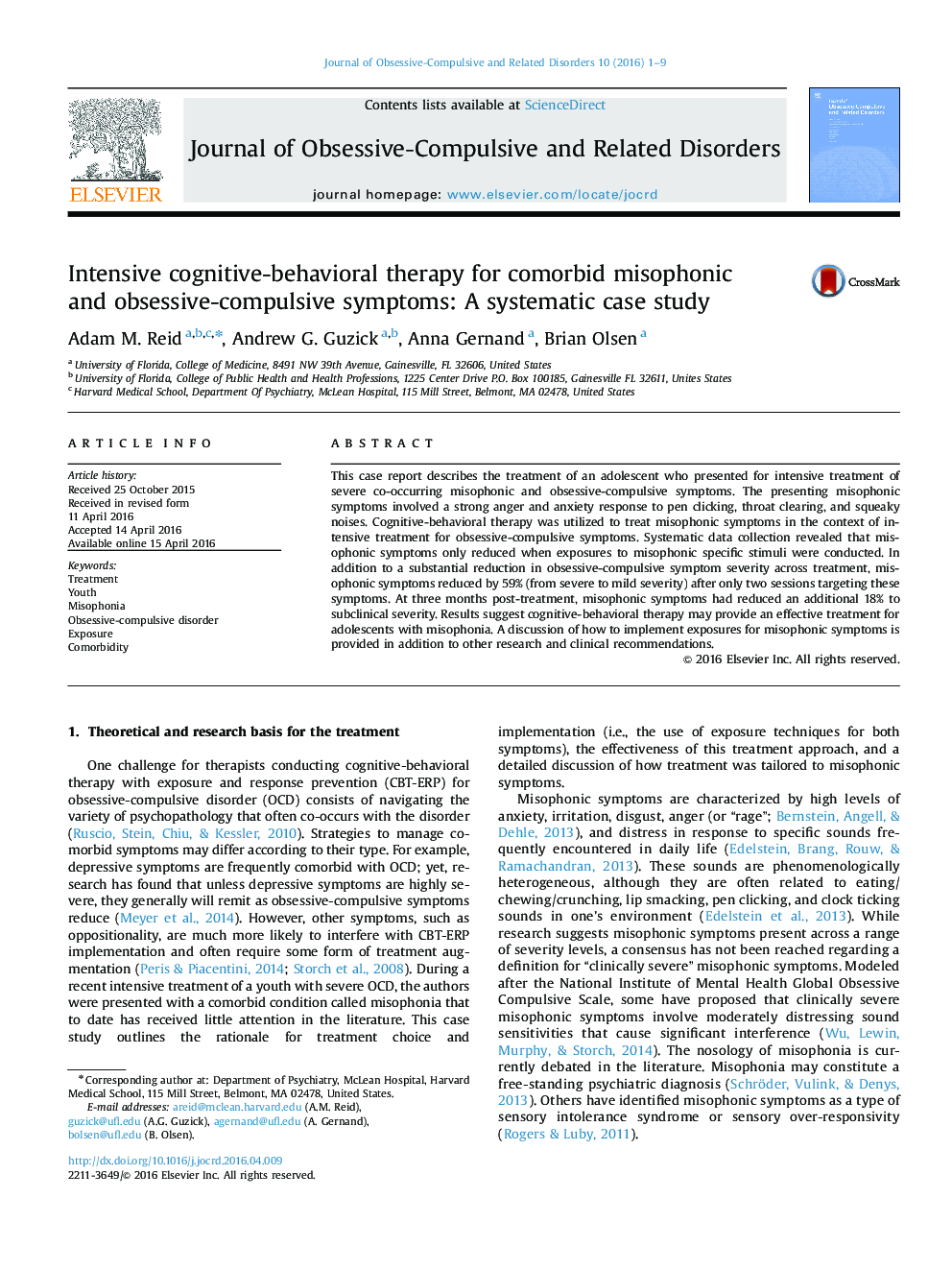| Article ID | Journal | Published Year | Pages | File Type |
|---|---|---|---|---|
| 912167 | Journal of Obsessive-Compulsive and Related Disorders | 2016 | 9 Pages |
•Misophonia was treated during intensive cognitive-behavioral therapy for OCD.•Misophonic symptoms did not remit without targeted exposures.•Misophonic symptoms reduced by 59% after two sessions with targeted exposures.•Treatment gains were maintained three months post-treatment.•Misphonic symptoms appear to be maintained by behavioral and cognitive factors.
This case report describes the treatment of an adolescent who presented for intensive treatment of severe co-occurring misophonic and obsessive-compulsive symptoms. The presenting misophonic symptoms involved a strong anger and anxiety response to pen clicking, throat clearing, and squeaky noises. Cognitive-behavioral therapy was utilized to treat misophonic symptoms in the context of intensive treatment for obsessive-compulsive symptoms. Systematic data collection revealed that misophonic symptoms only reduced when exposures to misophonic specific stimuli were conducted. In addition to a substantial reduction in obsessive-compulsive symptom severity across treatment, misophonic symptoms reduced by 59% (from severe to mild severity) after only two sessions targeting these symptoms. At three months post-treatment, misophonic symptoms had reduced an additional 18% to subclinical severity. Results suggest cognitive-behavioral therapy may provide an effective treatment for adolescents with misophonia. A discussion of how to implement exposures for misophonic symptoms is provided in addition to other research and clinical recommendations.
